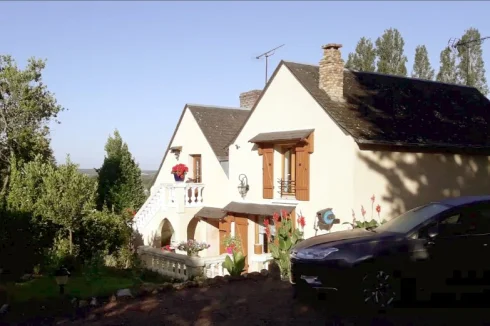Local Rates in France Rise by 6.1%
Thursday 15 October 2009
If you live within one of the larger towns or cities the average increase is 8%. For some, the increase has been significantly higher.
Only a few councils have decided not to impose an increase, notably Aix-en-Provence, Toulon and Reims. Nevertheless, even in these towns households will pay more simply because of the increase in the local rateable value of properties, related as they are to the index for inflation.
A breakdown of the figures for the major towns of France is shown on the following table.
| Taxe d'habitation | Taxe Fonciere | |||
|---|---|---|---|---|
| Town | % Change | Average Rates | % Change | Average Rates |
| Aix-en-Provence | +2,5% | €968 | +2,5% | €790 |
| Bordeaux | +3,7% | €1064 | +3,8% | €1060 |
| Brest | +4,7% | €969 | +4,7% | €831 |
| Caen | +1,9% | €853 | +7,3% | €1132 |
| Dijon | +4,3% | €704 | +4,4% | €963 |
| Grenoble | +11,9% | €723 | +12% | €1087 |
| Le Havre | +11,2% | €738 | +11% | €1070 |
| Le Mans | +7,3% | €878 | +7,1% | €837 |
| Lille | +4,8% | €884 | +7,4% | €538 |
| Limoges | +3,6% | €1020 | +4,4% | €800 |
| Lyon | +6,6% | €839 | +7% | €637 |
| Marseille | +5,7% | €979 | +12,60% | €921 |
| Montpellier | +10,7 | €1123 | +7,6% | €1212 |
| Nancy | +5,3% | €1088 | +5,3% | €813 |
| Nantes | +5% | €957 | +14,3% | €869 |
| Nice | +12,7% | €960 | +16,5% | €938 |
| Nimes | +3,3% | €1164 | +3,7% | €1163 |
| Paris | +11,7 | €395 | +47% | €552 |
| Perpignan | +5,2% | €1006 | +5% | €1048 |
| Reims | +2,4% | €872 | +2,5% | €881 |
| Rouen | +6,6% | €772 | +7,7% | €930 |
| Strasbourg | +3,1% | €829 | +3,6% | €617 |
| Toulon | +2,4% | €855 | +2,5% | €878 |
| Toulouse | +4,2% | €819 | +4,8% | €910 |
| Tours | +8,9% | €811 | +8% | €716 |
According to the authors of the above table, the national average combined level of the taxe d’habitation and the taxe foncière in 2009 is €1502.
The rates are generally smaller in the rural communes that do not provide the range of services required in an urban area.
The weekly French magazine 'Capital' has also undertaken a similar analysis to that of the Forum, in which they examined the increase in rates for 340 towns and cities of France, which you can find here. The link may not be on-line indefinitely.
In their analysis of the main urban areas the average level of the rates comes in at €1583, an average increase this year of 5.4%.
The lowest rates in the 'Capital' survey were at Hagetnau in the department of Bas-Rhin, where residents paid a combined total of €872, while the highest rates were to be paid in Yerres in the department of Essonne, where the amount payable was €2616.
Why Have Rates Gone Up?
The large increases this year can be attributed to numerous factors, not least of which is the reduction in the taxes the local councils are collecting in stamp duty from property sales. Income from stamp duty accounts for an important source of revenue for many councils, and property sales in France are down by around 30% on recent years.
Local councils also complain that the decentralisation of public services to them from central government has not been accompanied by the transfer of resources in equal measure.
Many of these services include the delivery of key social services and social security benefits, and with the economic crisis, demand for these services has risen.
Critics also consider that there are two many layers of local government in France, which substantially adds to the cost of local services. The present government have committed themselves to a slimming down of the whole edifice, but they are meeting substantial resistance, and there is a fear that there is too much voluntarism about the plan. Turkeys do not vote for Christmas!
Other commentators also consider that a larger increase this year was inevitable, following the local elections last year when the increases were kept to a minimum.
This is a particularly tough time of year for French households, as not only do they receive the tax bills for their local rates, but their income tax bill is also payable, and those that receive investment and rental income also face payment of the social charges.
The taxe d’habitation bill must be paid by today 15th October, and the taxe foncière by 16th November.
Local councils also receive business rates in the form of the taxe professionnelle, but this is due for reform, and there is concern that it will lead to a reduction in charges for local businesses that will need to be picked up by residents.
You can read more about rates in France, including the exemptions and reductions available, in our comprehensive guide to Local Property Taxes in France.
Thank you for showing an interest in our News section.
Our News section is no longer being published although our catalogue of articles remains in place.
If you found our News useful, please have a look at France Insider, our subscription based News service with in-depth analysis, or our authoritative Guides to France.
If you require advice and assistance with the purchase of French property and moving to France, then take a look at the France Insider Property Clinic.





